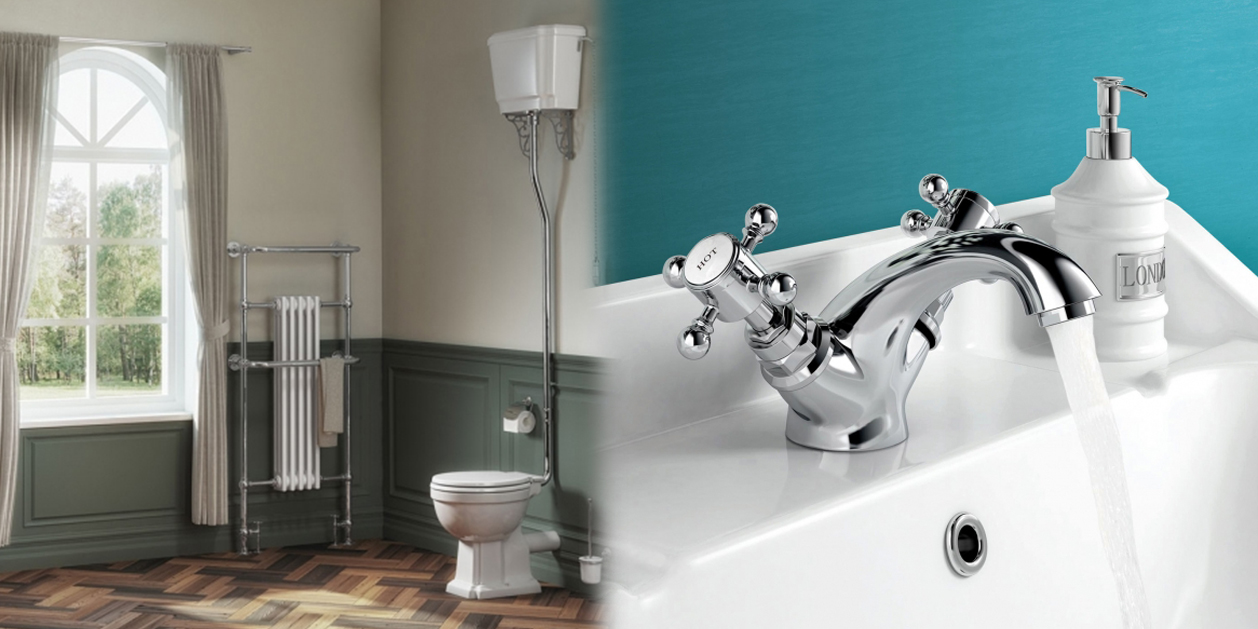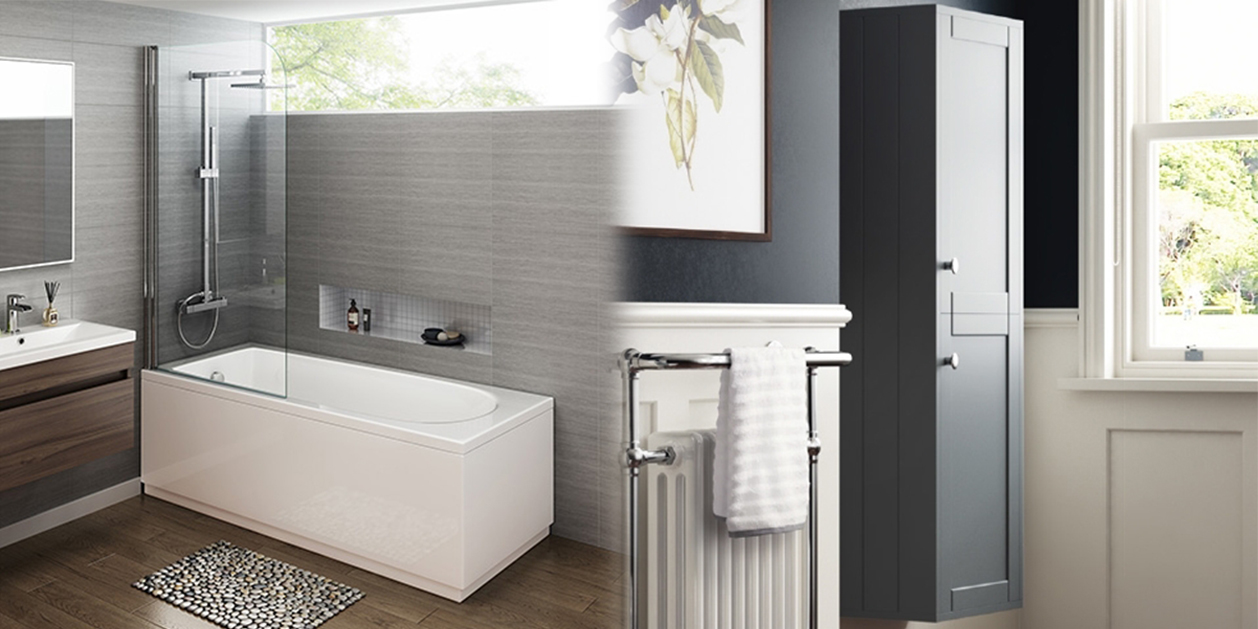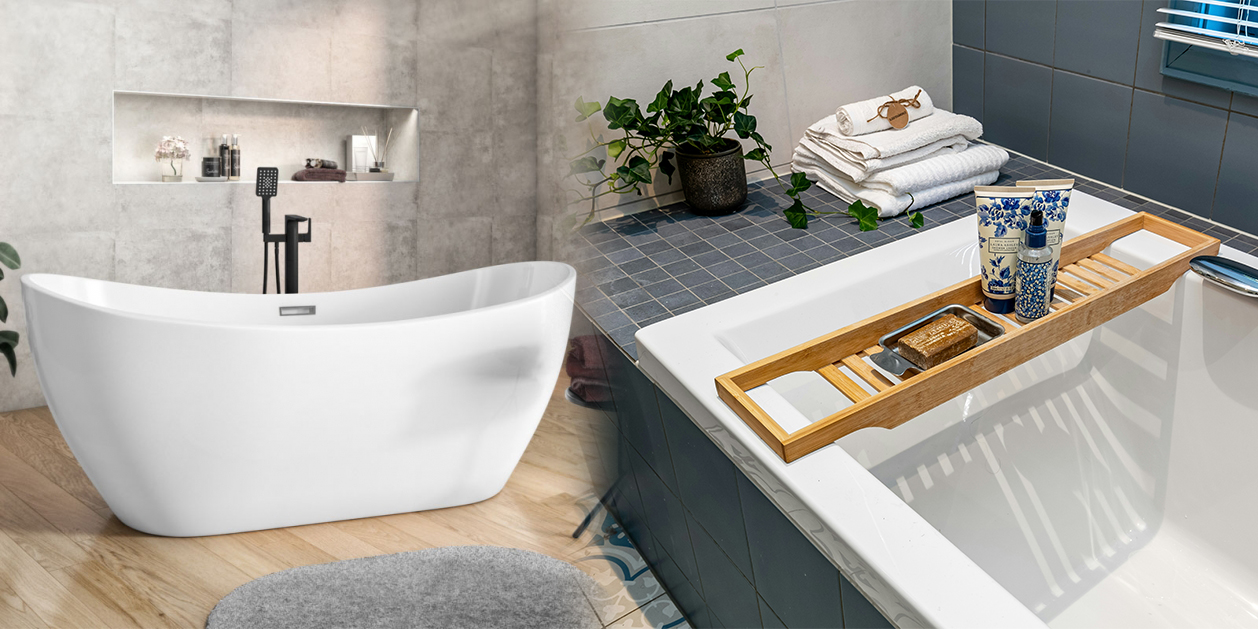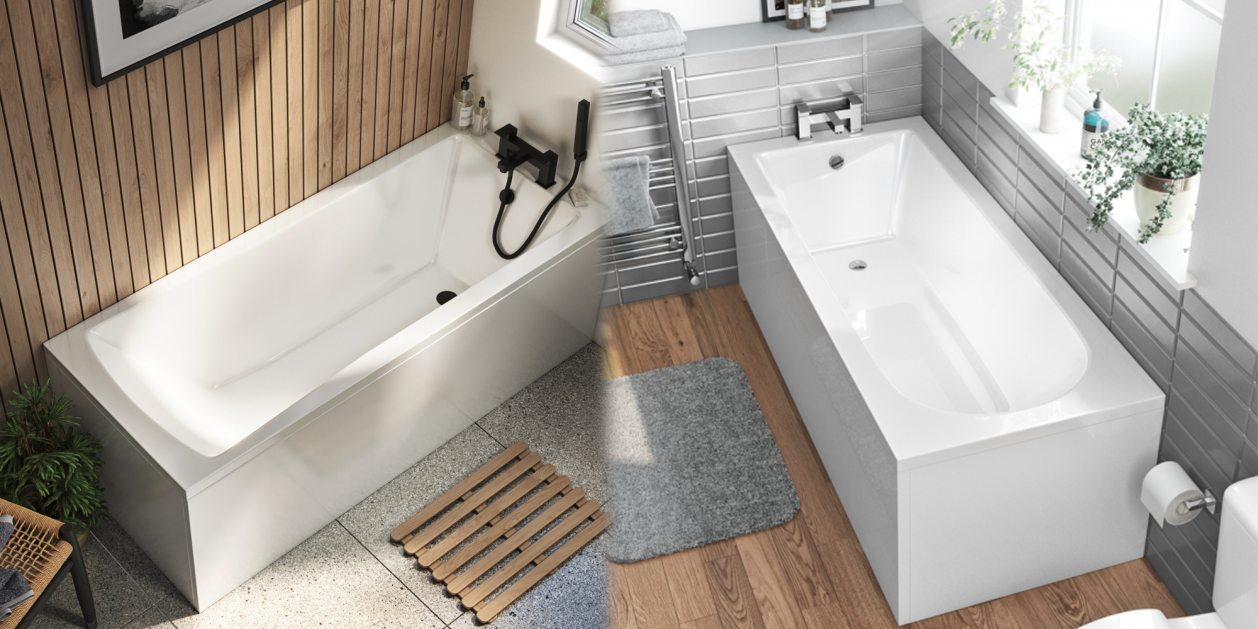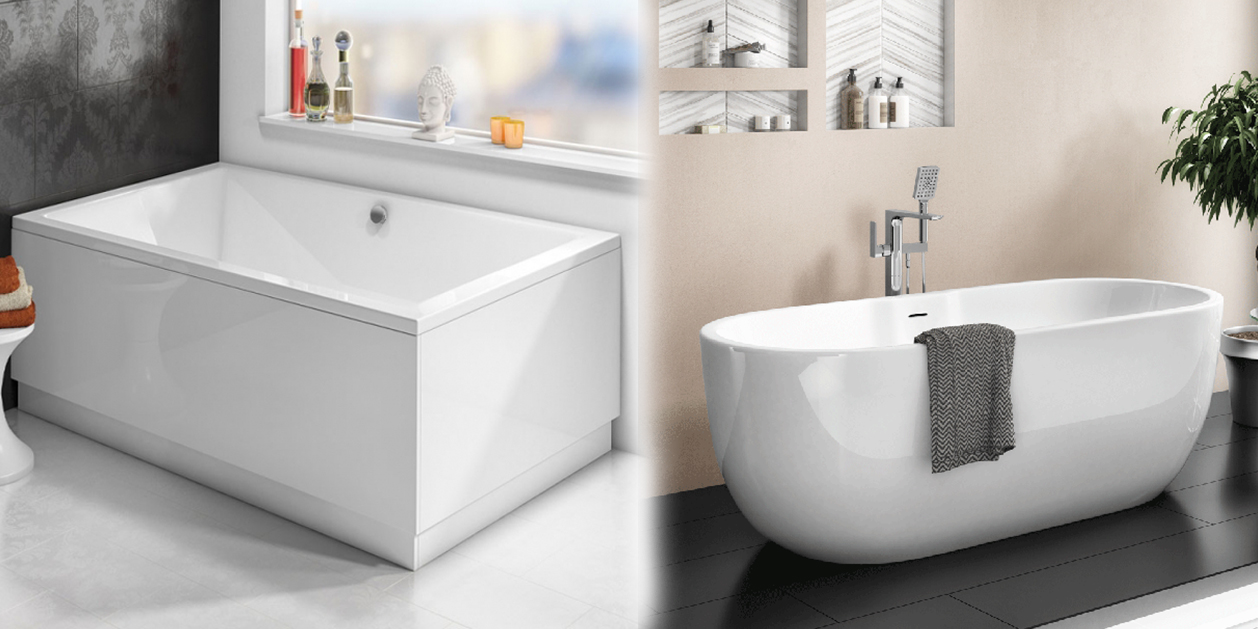The Benefits of Bathroom Wall Tiles
The Benefits of Bathroom Wall Tiles - Accessories
Wall tiles can make or break a bathroom. Whether they are contemporary and modern, or traditional and timeless, your tiles can have a much bigger impact than you realise. However, there is no reason to be alarmed by this revelation. Here at Bathshop321, we provide a number of top tips on the benefits of tiles for you and your bathroom.
Here’s a blog for you all which is teamed up with our friends at Topps Tiles!
Wall tiles can make or break a bathroom. Whether they are contemporary and modern, or traditional and timeless, your tiles can have a much bigger impact than you realise. However, there is no reason to be alarmed by this revelation. Here at Bathshop321, we provide a number of top tips on the benefits of tiles for you and your bathroom.
Porcelain Tiles
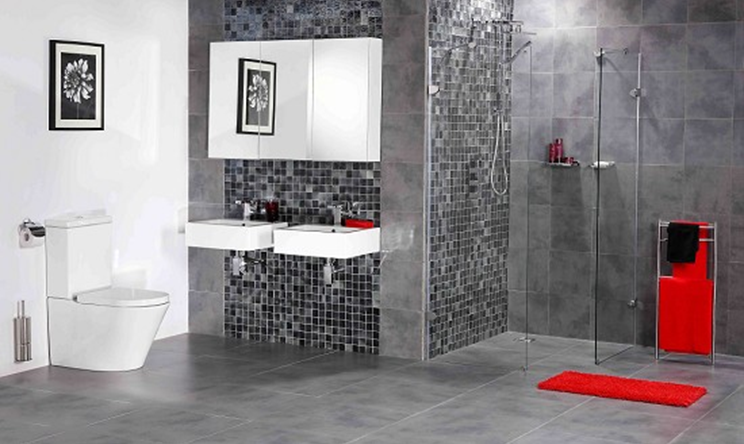
If you are contemplating a bathroom overhaul, you should seriously consider porcelain wall tiles as a viable option. Advances in tile design mean that porcelain is now the forerunner for the stylish, modern bathroom. These tiles can be bought in a wide range of colours, from outlandish purple to neutral greys, meaning that you can match them to almost all colour schemes. Porcelain wall tiles are created from the latest production technology and are a great option for the ultra-modern, fashion conscious bathroom. Their detailed, precise finish and polished surface give these tiles an attractive, sleek appearance, which allows them to compliment the modern bathroom design perfectly.
Porcelain wall tiles are not only stylish, but are highly functional as well. Their hard wearing surface makes these tiles extremely resistant to chips and cracks, so they last much longer than other, weaker types of tile. Another benefit of porcelain tiles is that they are almost completely non-absorbent. As a result of this, they do are not damaged by regular contact with water, making these tiles perfect for the bathroom.
Glass Tiles
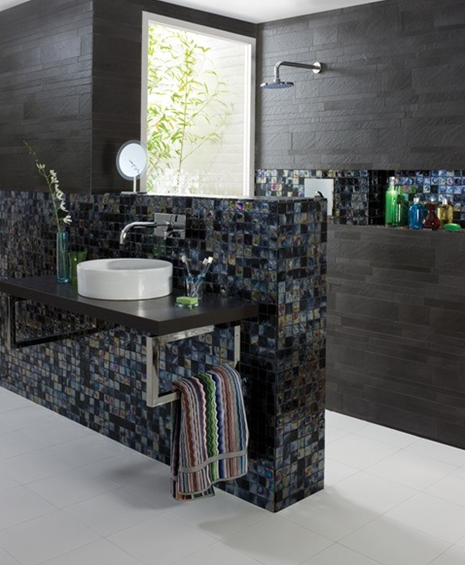
One type of tile that is quickly growing in popularity with homeowners is glass. Glass tiles do something that no other tile does; they light up the room. They act as a natural source of reflection, which acts to brighten up the appearance of the room, making your bathroom feel bigger and more welcoming to anyone who enters it. Like porcelain, glass tiles can be purchased in a variety of colours, sizes and designs, meaning that they can suit any style of bathroom. Unlike porcelain however, glass tiling can be easily manipulated to fit any interior décor. Glasscutters can be purchased from most hardware stores for between £15 and £30, so that, if you have any excess glass left over, or simply feel like making a change, you can do this easily and cheaply.
Despite what you might expect from glass tiling, it is in fact highly durable. Glass tiles are hard to damage through scratching or straining, with most lasting ten years or more. Alongside this functionality, glass tiling has become more and more green over the last few years, and we don’t mean the colour. You can often buy glass tile that has been recycled, which uses less energy to produce and is great for the environment!
Marble Tiles
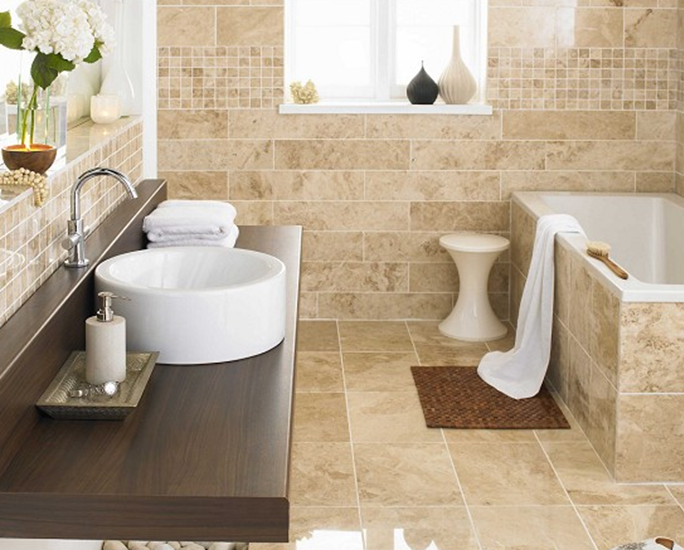
For those with more sophisticated tastes, marble is the material for you. Marble tiles are a fantastic addition to any bathroom wall, but especially more traditional designs. Marble offers a regal, elegant quality to a bathroom, making it seem instantly more lavish and luxurious. Another advantage, which may not appeal to all, but will greatly excite others, is that no two marble wall tiles are exactly the same. Marble tiles have veins of colour running through them, which change from tile to tile and make each individual tile a unique bathroom feature.
Marble tiles also offer a high level of functionality. As with the other tiles, marble is non-absorbent, meaning it can be wiped down or mopped with relative ease and will not allow water to pass through it and create mould. As well as this, marble is also environmentally friendly, as it is not a good heat conductor. Whilst this may sound bad initially, it means that heat from the shower, bath or sunlight is not trapped in the wall. As a result of this, you will save energy and money from the lack of cooling costs.
